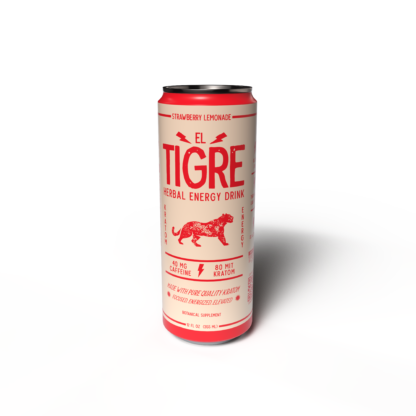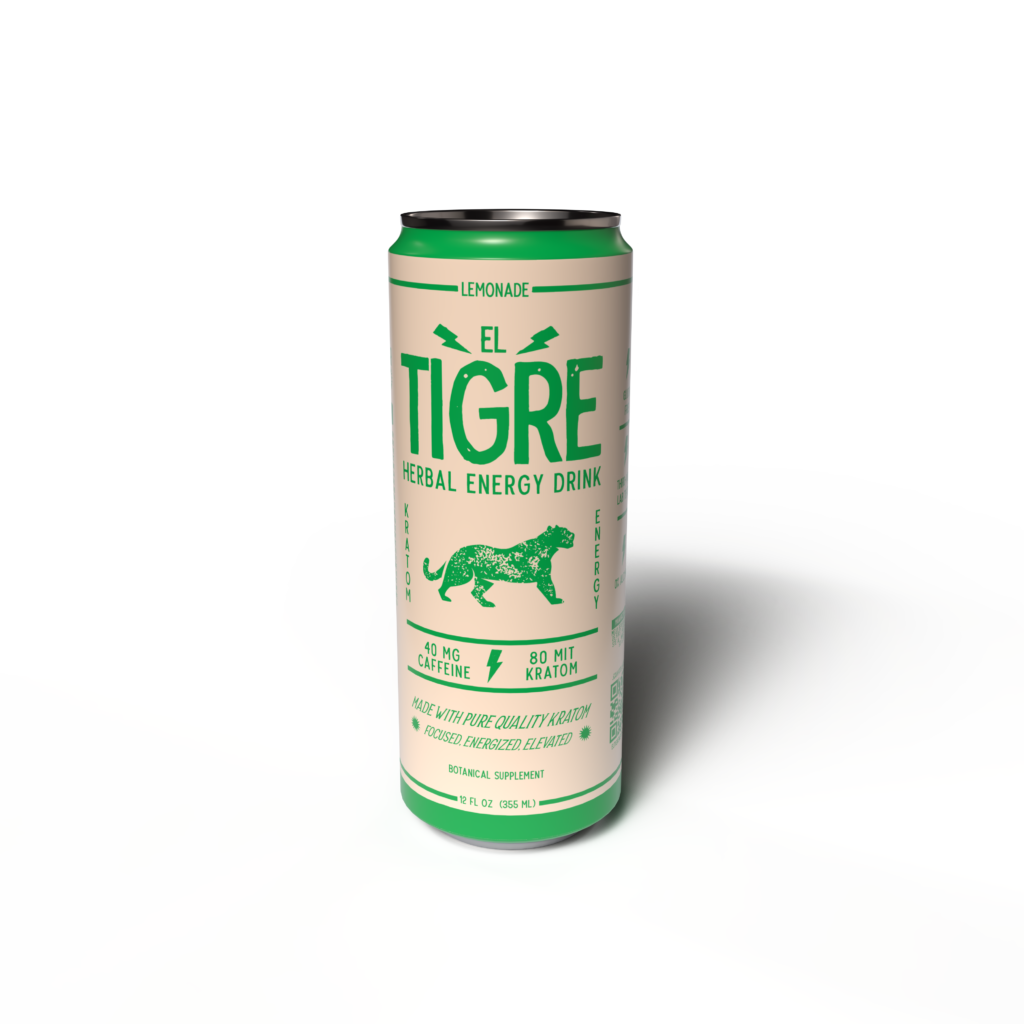Potential Risks of Kratom Energy Drinks
While kratom-infused energy drinks offer a novel way to boost energy, it’s crucial to be aware of the potential risks associated with their consumption.
Cardiovascular Effects
Kratom energy drinks present a unique blend of stimulating effects derived from both kratom and other common energy drink ingredients. However, this combination can pose several cardiovascular risks, particularly for individuals with pre-existing conditions or those sensitive to stimulants.
- Increased Heart Rate and Blood Pressure: Both kratom and caffeine, a standard ingredient in most energy drinks, are known to elevate heart rate and blood pressure. Consuming kratom energy drinks can exacerbate these effects, potentially leading to hypertension or palpitations, especially in individuals with cardiovascular issues.
- Risk of Arrhythmias: Kratom alkaloids may interfere with the heart’s electrical signals, increasing the risk of irregular heartbeat (arrhythmia). Combining this with caffeine’s stimulating effects can further amplify this risk.
- Dehydration: Energy drinks often contain diuretics, which can lead to dehydration. This, combined with kratom’s potential for increased fluid loss through sweating, can worsen cardiovascular strain.
Neurological Side Effects
In addition to cardiovascular risks, kratom energy drinks can also exert negative effects on the nervous system. Kratom alkaloids interact with opioid receptors in the brain, potentially leading to a range of neurological side effects.
- Anxiety and Restlessness: Kratom can produce feelings of anxiety and restlessness, particularly at higher doses or in individuals sensitive to its effects.
- Headaches and Dizziness: Both kratom and caffeine are known to cause headaches and dizziness in some individuals.
- Insomnia: Kratom’s stimulant properties can interfere with sleep patterns, leading to insomnia or difficulty sleeping.

Addiction and Dependence
The stimulating effects of kratom energy drinks come with a risk of addiction and dependence. Kratom contains alkaloids that interact with opioid receptors in the brain, producing feelings of euphoria and relaxation. Regular use can lead to tolerance, requiring higher doses to achieve the desired effects.
Withdrawal symptoms can occur when kratom consumption is stopped abruptly, including anxiety, irritability, muscle aches, nausea, and insomnia. These symptoms can be uncomfortable and may contribute to a cycle of dependence. Long-term use of kratom energy drinks may also increase the risk of developing opioid use disorder.
Safe Consumption Guidelines
While kratom-infused energy beverages offer an enticing boost in energy levels, it’s crucial to understand the potential dangers associated with their consumption.
Dosage Recommendations
The frequency and dosage of kratom energy drink consumption should be approached with extreme caution.
Due to the combined effects of kratom and typical energy drink ingredients, there is no established safe frequency or dosage guideline for these beverages. Individual tolerance varies greatly, and factors like weight, metabolism, and pre-existing health conditions play a significant role in determining how the body responds to kratom.
It is strongly advised to err on the side of extreme caution and avoid consuming kratom energy drinks altogether. If you do choose to consume them, start with a very small amount and carefully monitor your body’s reaction. Be aware that even small amounts can have significant effects.
Pay close attention to any adverse reactions, such as increased heart rate, anxiety, dizziness, or insomnia. If you experience any negative symptoms, discontinue use immediately.
Frequency of Consumption
While kratom-infused energy drinks offer a novel way to boost energy, it’s crucial to be aware of the potential risks associated with their consumption.
Kratom energy drinks present a unique blend of stimulating effects derived from both kratom and other common energy drink ingredients. However, this combination can pose several cardiovascular risks, particularly for individuals with pre-existing conditions or those sensitive to stimulants. Increased Heart Rate and Blood Pressure: Both kratom and caffeine, a standard ingredient in most energy drinks, are known to elevate heart rate and blood pressure. Consuming kratom energy drinks can exacerbate these effects, potentially leading to hypertension or palpitations, especially in individuals with cardiovascular issues.
Risk of Arrhythmias: Kratom alkaloids may interfere with the heart’s electrical signals, increasing the risk of irregular heartbeat (arrhythmia). Combining this with caffeine’s stimulating effects can further amplify this risk. Dehydration: Energy drinks often contain diuretics, which can lead to dehydration. This, combined with kratom’s potential for increased fluid loss through sweating, can worsen cardiovascular strain.
In addition to cardiovascular risks, kratom energy drinks can also exert negative effects on the nervous system. Kratom alkaloids interact with opioid receptors in the brain, potentially leading to a range of neurological side effects. Anxiety and Restlessness: Kratom can produce feelings of anxiety and restlessness, particularly at higher doses or in individuals sensitive to its effects.
Headaches and Dizziness: Both kratom and caffeine are known to cause headaches and dizziness in some individuals. Insomnia: Kratom’s stimulant properties can interfere with sleep patterns, leading to insomnia or difficulty sleeping.
The stimulating effects of kratom energy drinks come with a risk of addiction and dependence. Kratom contains alkaloids that interact with opioid receptors in the brain, producing feelings of euphoria and relaxation. Regular use can lead to tolerance, requiring higher doses to achieve the desired effects. Withdrawal symptoms can occur when kratom consumption is stopped abruptly, including anxiety, irritability, muscle aches, nausea, and insomnia. These symptoms can be uncomfortable and may contribute to a cycle of dependence. Long-term use of kratom energy drinks may also increase the risk of developing opioid use disorder.
While kratom-infused energy beverages offer an enticing boost in energy levels, it’s crucial to understand the potential dangers associated with their consumption.
The frequency and dosage of kratom energy drink consumption should be approached with extreme caution. Due to the combined effects of kratom and typical energy drink ingredients, there is no established safe frequency or dosage guideline for these beverages. Individual tolerance varies greatly, and factors like weight, metabolism, and pre-existing health conditions play a significant role in determining how the body responds to kratom.
It is strongly advised to err on the side of extreme caution and avoid consuming kratom energy drinks altogether. If you do choose to consume them, start with a very small amount and carefully monitor your body’s reaction. Be aware that even small amounts can have significant effects. Pay close attention to any adverse reactions, such as increased heart rate, anxiety, dizziness, or insomnia. If you experience any negative symptoms, discontinue use immediately.

Individual Tolerance Variation
Individual tolerance to kratom varies greatly depending on factors such as body weight, metabolism, genetics, and prior experience with kratom or other stimulants.
What might be a safe dose for one person could lead to adverse effects in another. This variability makes it difficult to establish universal safety guidelines for kratom energy drinks.
Legal Status and Regulations
The legal status of kratom and kratom-infused products varies widely around the world. Some countries have completely banned kratom, while others have regulated its sale and use. In the United States, kratom is not currently a controlled substance at the federal level, but individual states may have their own laws regarding its sale or possession.
Varying Laws Across Jurisdictions
Individual tolerance to kratom varies greatly depending on factors such as body weight, metabolism, genetics, and prior experience with kratom or other stimulants. What might be a safe dose for one person could lead to adverse effects in another. This variability makes it difficult to establish universal safety guidelines for kratom energy drinks.
The legal status of kratom and kratom-infused products varies widely around the world. Some countries have completely banned kratom, while others have regulated its sale and use. In the United States, kratom is not currently a controlled substance at the federal level, but individual states may have their own laws regarding its sale or possession.
Potential for Contamination

The legal status of kratom and kratom-infused products varies widely around the world. Some countries have completely banned kratom, while others have regulated its sale and use. In the United States, kratom is not currently a controlled substance at the federal level, but individual states may have their own laws regarding its sale or possession.
Potential contamination of kratom products is a significant concern. Kratom plants are susceptible to various pests and diseases, which can lead to contamination with microorganisms or harmful substances.
Additionally, the production and handling of kratom may not always adhere to strict quality control measures, increasing the risk of contamination during processing, storage, or transportation.
Alternatives to Kratom Energy Beverages
While kratom-infused energy drinks offer a novel way to boost energy, it’s crucial to be aware of the potential risks associated with their consumption. Kratom energy drinks present a unique blend of stimulating effects derived from both kratom and other common energy drink ingredients. However, this combination can pose several health concerns, especially for individuals with pre-existing conditions or those sensitive to stimulants.
Other Natural Energy Boosters
If you’re looking for alternatives to kratom energy beverages, there are a number of natural energy boosters that offer a safer and healthier way to increase your energy levels.
These include:
-
Green Tea: Rich in caffeine and L-theanine, green tea provides a sustained energy boost without the jitters associated with coffee.
-
Coffee (in moderation): A classic source of caffeine, coffee can provide a quick burst of energy. However, it’s important to consume it in moderation to avoid negative effects like anxiety or insomnia.
-
Exercise: Physical activity increases blood flow and oxygen to the brain, naturally boosting energy levels and improving mood.
-
Proper Nutrition: A balanced diet that includes plenty of fruits, vegetables, whole grains, and lean protein provides sustained energy throughout the day.
-
Adequate Sleep: Aim for 7-8 hours of quality sleep per night to ensure your body is properly rested and energized.
-
Water Intake: Dehydration can lead to fatigue, so staying well-hydrated is crucial for maintaining energy levels.
Remember that natural energy boosters work best when combined with a healthy lifestyle that includes regular exercise, balanced nutrition, and sufficient sleep.
Synthetic Caffeine Alternatives
Individuals seeking alternatives to kratom energy beverages should explore synthetic caffeine alternatives. These options provide similar stimulating effects without the potential risks associated with kratom.
Some popular synthetic caffeine alternatives include:
-
L-Theanine: An amino acid found in green tea, L-theanine promotes relaxation and focus while enhancing cognitive function. It’s often combined with caffeine to minimize jitters and provide a smoother energy boost.
-
Guarana: This Amazonian plant contains high levels of caffeine and is used as a natural energy booster. Guarana also provides antioxidants and may improve mental clarity.
-
Yerba Mate: A South American beverage, yerba mate contains caffeine and other stimulating compounds that promote alertness and focus. It’s known for its sustained energy release and unique flavor profile.
It’s important to note that while synthetic caffeine alternatives generally have fewer risks than kratom, they can still cause side effects like anxiety, insomnia, or digestive issues. Moderation is key when using any type of stimulant.
Buy this tasty Kratom drink
MS Style and Grace
Resilience Medicine Clinics
- Xela Rederm Skin Booster Treatments Near Merton, Surrey - January 19, 2026
- Xela Rederm Skin Booster Treatments Near Betchworth, Surrey - January 17, 2026
- Why The Craftsman Series Vape Is A Favorite Among Cannabis Users - January 14, 2026
